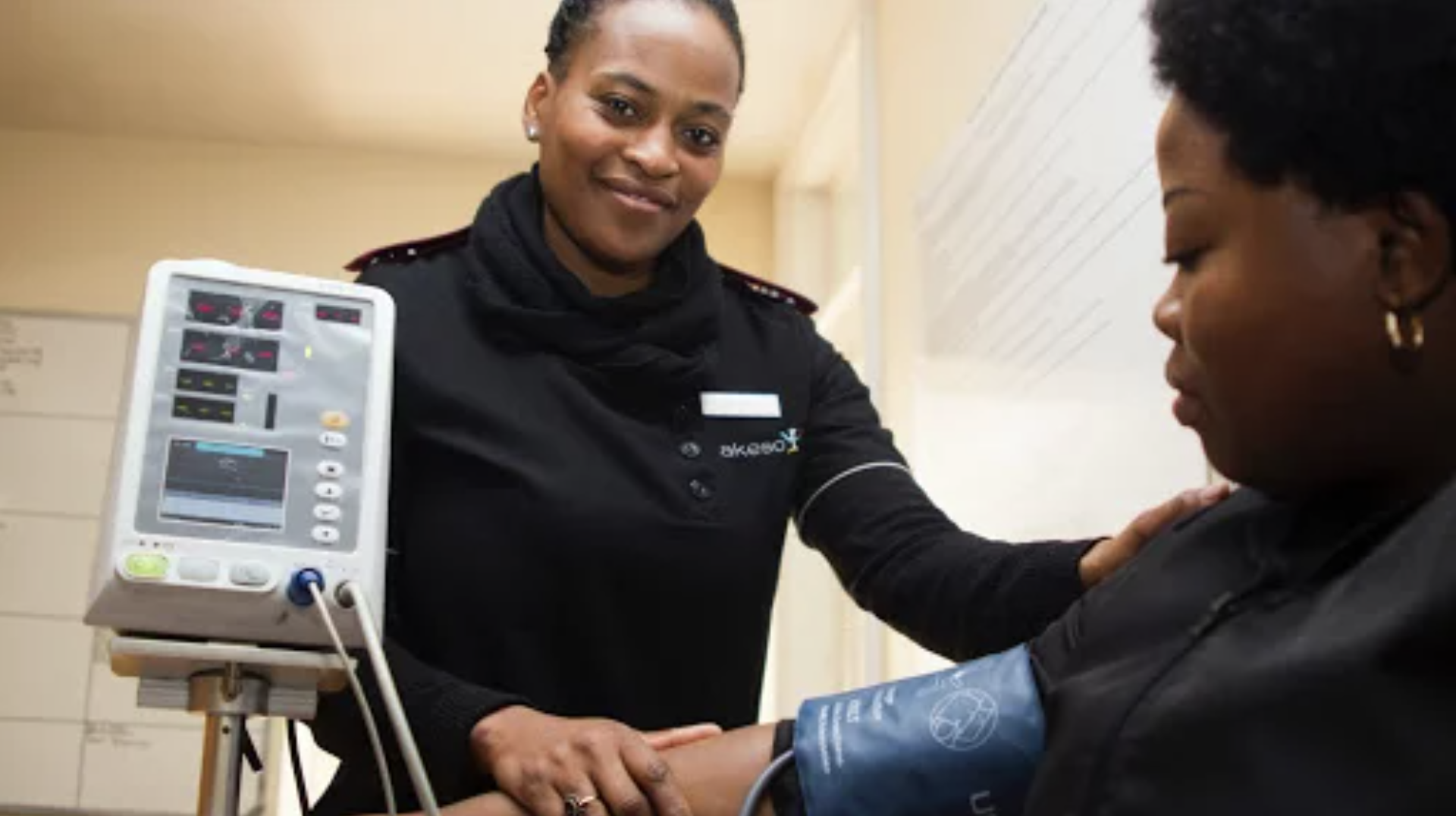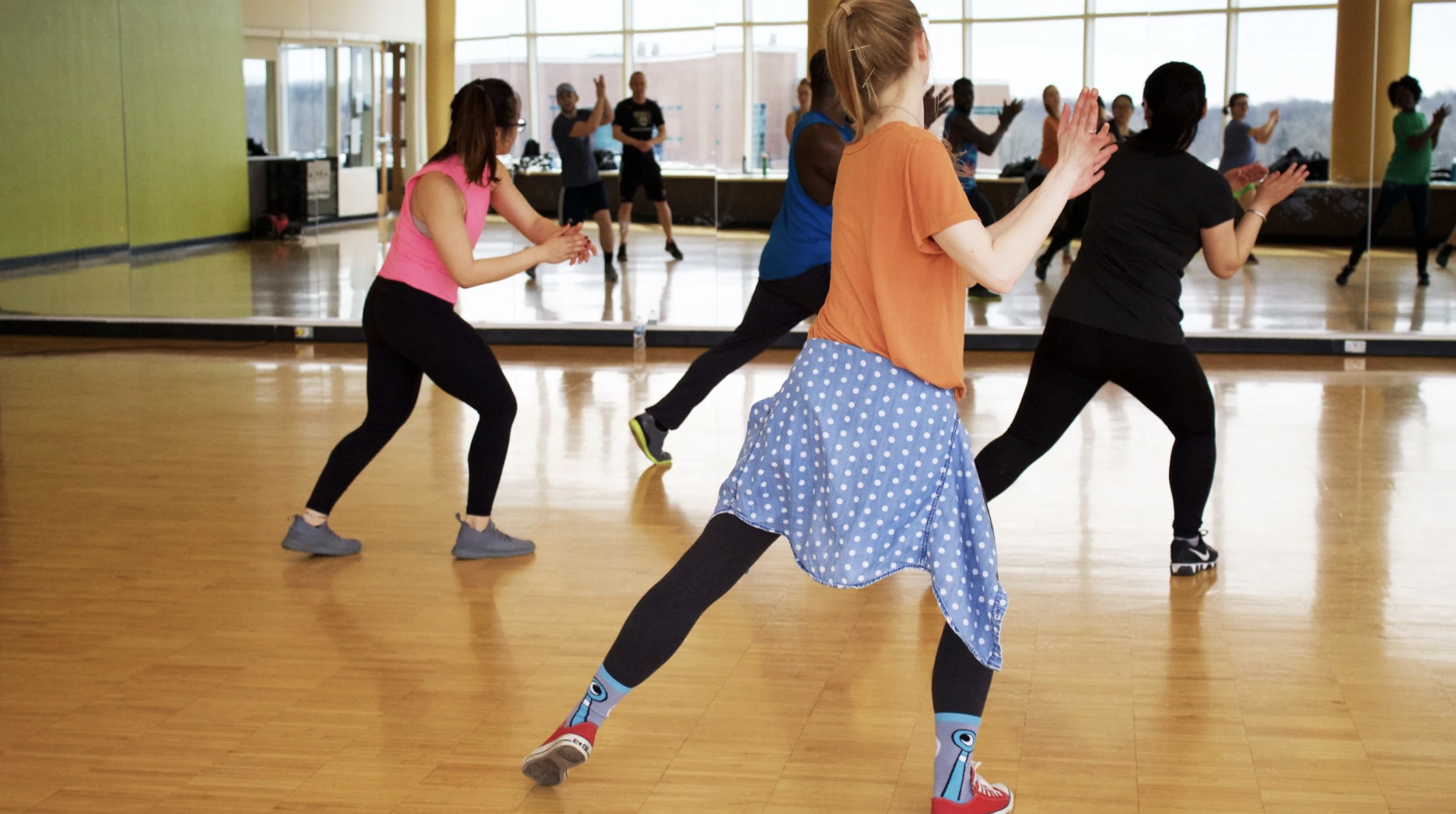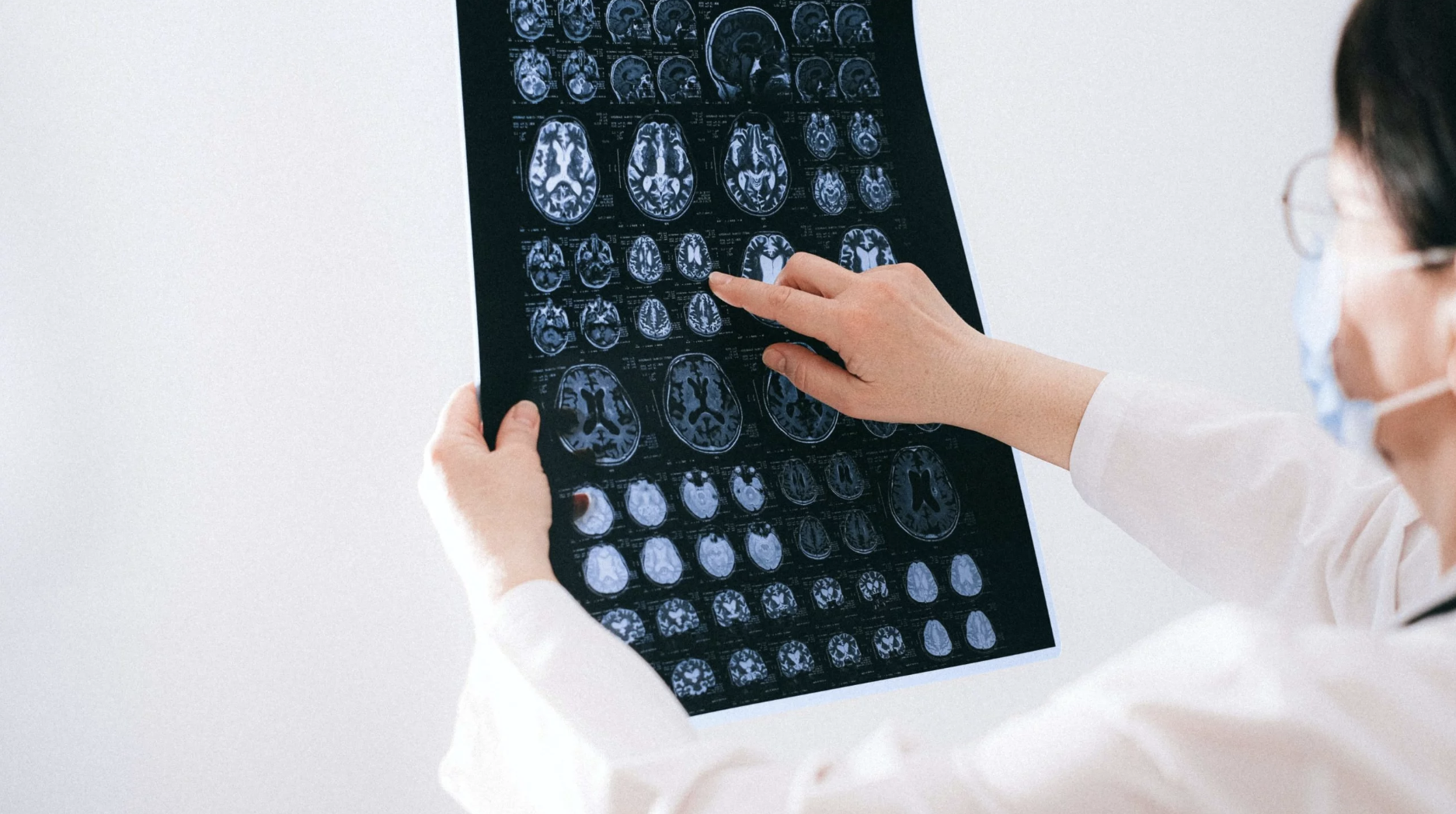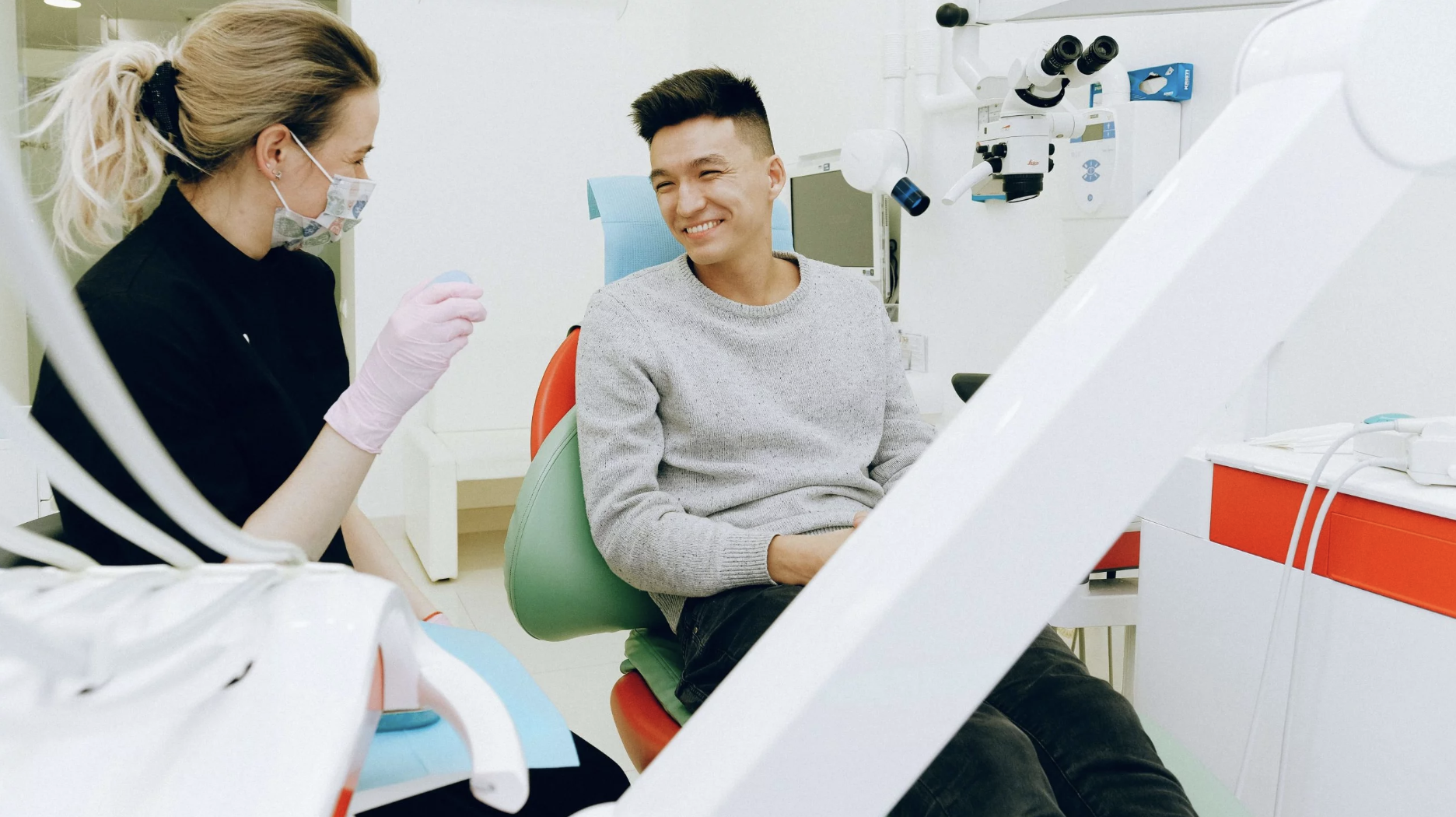
Purpose
The Autism Intervention Research Network on Physical Health (AIR-P) establishes and maintains an interdisciplinary, multicenter research network for scientific collaboration and infrastructure to increase the life expectancy and quality of life for autistic individuals, particularly for underserved and vulnerable populations. The AIR-P supports innovative life course intervention research that promotes optimal health and well-being of autistic individuals across the lifespan.
Objectives
Identify - Identify the needs, experiences, and priorities of autistic individuals and their families and the current gaps in research, practice, and policy.
Translate - Facilitate the transition of intervention research to policy and practice by disseminating findings across a sectors for diverse audiences.
Implement - Implement multi-site data collection through the AIR-P Network and create a centralized data repository.
Train - Facilitate and support the training and mentorship of diverse early career investigators in physical health and autism.
AIR-P Network Updates
AIR-P Network updates include information on upcoming monthly webinars, details about AIR-P Research Day's, additional opportunities within the Network like how to get publications in the Cureus channel, and general Network updates.
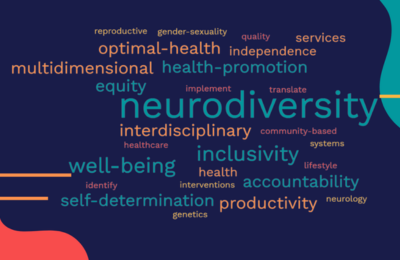
AIR-P Network Monthly Webinars
AIR-P's monthly webinar series provides a setting for the AIR-P Network to share recent research findings promoting optimal health and well-being of autistic individuals across the lifespan. AIR-P welcomes people with autism, families, researchers, educators, and other Network stakeholders to join the webinars or view archived recordings.
Recent webinar topics include plain language writing, examining the intersectionality of race and ASD, big data's role in autism research, and more.
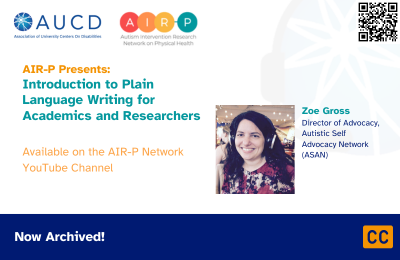
April 2024 Webinar
Find all archived webinars on the AIR-P Network YouTube channel.
Areas of Focus
Leadership & Partnership
National Coordinating Center (NCC)
The University of California, Los Angeles (UCLA) leads the Autism Intervention Research Network on Physical Health (AIR-P) under the direction of Dr. Alice Kuo.
Autistic and Neurodivergent Scholars Working for Equity in Research (ANSWER)
AIR-P recently established the Autistic and Neurodivergent Scholars Working for Equity in Research (ANSWER) to serve as an innovative model for how autism researchers and autistic voices can effectively work together. ANSWER is a group of autistic researchers at various points in our careers as academics, lecturers, and consultants. This gives us the unique perspective as both scientists and lived-experience experts, with which to assess the merit of the proposed research projects and their relevance to improving the lives of autistic people. The mission of ANSWER is to support and empower autistic researchers in their efforts to lead research on autism and build community and collaborations between neurotypes within and beyond the AIR-P Network.
Association of University Centers on Disabilities (AUCD)
The Association of University Centers on Disabilities (AUCD) serves a key role in managing the overall functioning of the AIR-P Network. With AUCD's Network of 143 interdisciplinary Centers and Programs that bring together both university and community resources to achieve meaningful change, the AIR-P Network is poised to be highly successful in this partnership, delivering stakeholder-driven research and health promotion to autistic individuals and their families.
Collaborating Research Entities (CRE)
The research network of the AIR-P consists of the National Coordinating Center (NCC) and Collaborative Research Entities (CREs). These CREs receive annual infrastructure funding to participate in AIR-P Research Network activities:
- Participate in meetings and workgroups.
- Develop concepts and protocols for research.
- Implement studies and clinical trials.
- Enhance research training and mentorship of early career researchers.
- Translate findings to practice and training.
Activities
Research Scholars & Pilot and Feasibility Funding Program
- Provides funding and mentorship for independent investigators at all career stages.
- Annual RFP for four to ten awards ranging from $10k-$50k.
- Supports preliminary research and data collection to help secure external funding.
- Transdisciplinary collaboration encouraged.
- CRE faculty may have opportunity to serve as mentors to Scholars.
Infrastructure for Collaborative Research (ICR)
This online data repository supports research to be conducted at multiple sites through:
- Submission of proposals for research packages to be administered at other sites.
- Download of research packages from other sites to be administered.
- Preliminary data collection by requesting existing data housed in ICR.
- Access to data from AIR-P studies for secondary analysis.
Dissemination of Findings
- Research Day: twice annually at Autism CARES and AUCD Conference.
- AIR-P Cureus Channel: houses AIR-P network research papers.
- Monthly webinar series.
- AIR-P Listserv with monthly newsletter on the latest Network updates.
Emerging Activities
Additional committees, working groups, and projects are developing within and beyond the AIR-P Network. For the latest updates, be sure to check the AIR-P website and join the AIR-P listserv for monthly updates. For additional opportunities, please contact [email protected].
Locations
- Association of University Centers on Disabilities
- AJ Drexel Autism Institute
- Kaiser Permanente Northern California
- Mathematica
- Carolina Institute for Developmental Disabilities at University of North Carolina at Chapel Hill
- Center for Human Development at University of Alaska Anchorage
- Center on Human Development and Disability at University of Washington
- Indiana Institute on Disability and Community at Indiana University
- Institute on Community Integration at University of Minnesota
- Institute on Disability and Human Development at University of Illinois Chicago
- JFK Partners at University of Colorado Anschutz Medical Campus
- Kansas University Center on Developmental Disabilities at University of Kansas
- Kennedy Krieger Institute
- Mailman Center for Child Development at University of Miami Miller School of Medicine
- Rose F. Kennedy Children's Evaluation & Rehabilitation Center Center at the Children's Hospital at Montefiore
- Sonoran Center for Excellence in Disabilities at University of Arizona
- University of California Davis MIND Institute
- University of Tennessee Health Science Center, Center on Developmental Disabilities
Contact
- AIR-P Website
- Email: [email protected]
- X: @AIRPNetwork
- YouTube: @AIR-P Network
- Facebook: @AIRPNetwork
- Instagram: @airpnetwork
This project is supported by the Health Resources and Services Administration (HRSA) of the US Department of Health and Human Services (HHS) under award UT2MC39440, the Autism Intervention Research Network on Physical Health. The information, content, and/or conclusions are those of the author and should not be construed as the official position of, nor should any endorsements be inferred by HRSA, HHS, or the US Government.




